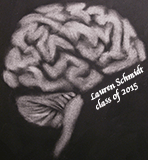Advice For Preparing For STEP 1
1. When to start and what to doMany students start their review for STEP 1 at the end of the semester. If your review starts earlier (eg February), don’t be too intense. It’s easy to burn out. After the semester ends you will be studying continuously for many hours each day, so you don’t want to be tired by the time you get to that important period of time. It’s probably a good idea to start on things you had the longest time ago like Medicine and Society, Heme, GI. Biochem, etc. This also might be a good time for Goldjian Pathology videos, which you could then cover a second time after the semester ends, if desired. For topics that require more memorization (like Micro and Pharm) there are 2 alternatives: 1) leave them for later because memorized information is forgotten more easily; 2) do a little at a time over a longer period with repetition (eg using flash cards and Micro Made Ridiculously Simple) because repeated exposure over long periods strengthens memory especially for this type of information. If you start early, don’t let this time interfere with your module learning because it is much better to review material during your later studying rather than to learn it for the first time.
2. Decrease distractionsWhen the semester ends and your intense period of studying begins, your attention must be focused on one goal - studying. If you are involved in any other activities that take significant time (committees, etc) delay them or decline participation until after the exam. Your time must be free for your use. Other people will deal with and accommodate to this important period in your life.
3. Study AtmosphereFind a quiet, comfortable place where you can study uninterrupted. You don’t want to be distracted by noise, people, internet access (email, chat, IM) etc. Don’t isolate yourself from conveniences like food, water, restroom. Try to think about your habits during the last 2 years and what made your studying most effective. Some people find it helpful to be around others; some find it better to be alone. Figure out what works best for you.
4. Study AwarenessBeware - reading is an automatic process for us that does not require much attention or conscious control. Thus, it is possible to read through material without attending to the significance of what you are reading. This is especially true if you are tired or lack a sufficient level of arousal (eg staying too long at one task). You should force yourself to summarize periodically what you have read.
5. Set-up Daily ScheduleSet up a daily schedule for your activities. Designate study times, eating times, recreation times, and sleep times. Good sleep is important preparation for the next day, for mental health, and for focused attention.
6. Follow Your ScheduleThis will ensure that you meet your studying goals without excess time or cramming. If you stick to your schedule, you know you will get it done. However, expect some variation because some topics may take longer than planned. Compensate by cutting back on other topics you understand better.
7. Stress AwarenessBe aware that this is a stressful time. The difficult work of studying and the significance of the impending exam will cause physical and emotional stress. Balance stress with fun activities. Include daily activities of things you like to do (running, swimming, walking, special food treats, movies, etc). When these are used appropriately, they can provide rewards for the hours spent studying and they will reinforce that behavior. Even so, outside events that don’t normally upset you may become unbearable and cause you to feel bad. Try to remove those pressures and continue your stress-reducing activities. Talk to friends or family for comfort.
8. Ups and DownsExpect to have some up and down periods of studying. After all, you are studying for 6 weeks almost everyday. If you are in a down period, do an uplifting activity to get your mind off things and then resume your studying.
9. You are learningRealize that this is a chance to learn - to pull things together in a way you might not have had a chance to do previously.
10. Optimism is importantMaintain a positive outlook. You ARE studying, you ARE learning, and you WILL pass the exam. Positive thinking has great benefits. It prepares you for studying each day, it encourages activities conducive to studying and learning, and often it is a self-fulfilling prophecy.
11. Questions, Questions, QuestionsWhy doing lots of questions is important- Doing many questions gives you many ways of looking at the same information. You develop different perspectives of the information that help you to understand it better. It allows you to take fundamental information and understand how it may be applied in different ways to different types of problems that initially appear different, but really are related. It makes you think about and learn the material in the way it will be tested on the exam.
12. You Can’t Know EverythingIt would be nice to know everything. However, learning is a life-long goal for all of us. Every time I teach I learn new things. I see things from new perspectives, which brings me joy in finally understanding something I only took for granted previously. So, you can’t know everything all at once. The key is knowing what is enough for now.
13. You Don’t Need To Know EverythingSTEP 1 is much more of a thinking/concepts exam than a memorization and recall type of exam. Your ability to understand concepts and to know why things happened in a case are much more important than the little details about things. Use this to guide the depth of your studying. A strong understanding of pathophysiological mechanisms is essential (what is the cause of the condition).
14. Effectiveness Increases With TimeAs your studying progresses, it will become more effective. You will have more knowledge that will help you understand how things fit together. You will understand explanations to questions better.
15. Finish EarlyPlan to finish your studying about 2 days before your exam date. Anxiety often increases after the intense period of studying and as the exam date approaches. You don’t want to leave important topics for this time. Use this period for light review (eg flash cards). Realize how hard you have worked. You want to enter the exam with confidence and a positive attitude.
16. The Test- Answering MC QuestionsWhen you answer questions, knowledge that is stored in memory but that is not necessarily available to your conscious thinking may help you to choose an answer. We learn much more than is immediately available to our conscious awareness. Thus, you may have a feeling that one answer is correct although you may not be sure why. This is a well-known phenomenon in which information previously learned influences a choice, but that information is not directly apparent to us at a conscious level. During the exam, you may suspect that an answer is correct, but you may not be sure. If you choose that answer, you probably should not change it later upon review unless you remember some specific information that indicates directly to you that another choice is correct.
Some Review Material
Meningitis Review, prepared by Michael Joynt, class of 2008
Ocular Pathology, prepared by Seema Mehta, class of 2008
Book/Question Suggestions, prepared by Alex Koyfman, class of 2010





